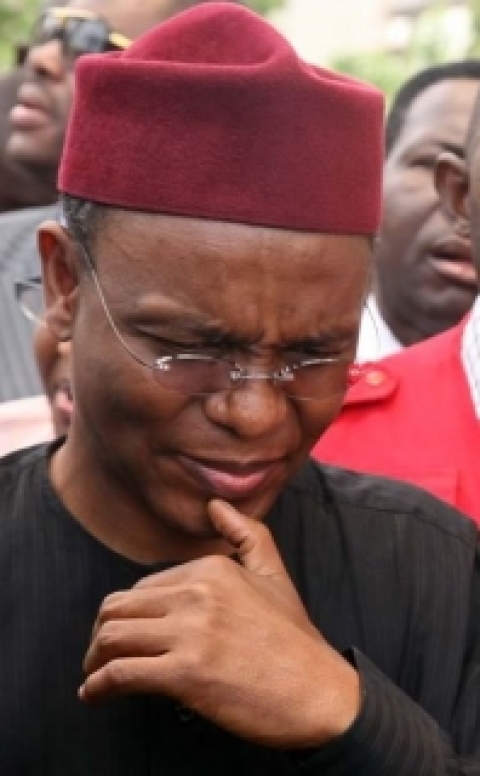A February In Crisis by Chukwuemeka Oluka
February is the month of love, and it is in crisis in Nigeria. Do Nigerians still know what love is all about? Many didn’t even realize the Valentine’s season tiptoed away from them unnoticed. Some would say love is bright; but today, love wears a dim and dull colour in Nigeria. Yes, the naira scarcity and the hike in fuel prices have painted love dark in the hearts of many. Nigerians seemingly did not know what it means to love or to be loved either. The phasing out of some naira notes took effect after January 2023 and the unfortunate economic crises it brought were situated in February — the season of love. Money became scarce. How do you even love when there is no money? So, it was pretty interesting to see how Nigerians expressed their love in the period. How the petrol and naira hardships altered the dynamics remained a wonder anyone would be in a hurry to know. Just like in the iambic pentameter of a typical Shakespearean sonnet, my feeble mind wobbled between bouts of rhythmic uncertainties. I brushed aside these uncertainties that hung lazily in the atmosphere like the harmattan haze. I was determined to begin preparations on time just so I could give my love a valentine’s treat that would live rent-free in the mind. Yes, the valentine’s season was gently creeping in. Banks had started sending me Valentine’s Day texts but wouldn’t give me my money. Yet as the crises generated by the naira redesign policy and fuel price hike deepened, my relationship with her was threatened. Communication between us gradually saw a decline. While I struggled to survive, I was ready to go against the odds to express love. The countdown moved from weeks to days. The love season should never happen to me out of the blue. So, discarding any negativity, I planned to defy the odds to visit the commercial bank in my area. I had heard unfortunate stories linked with the naira scarcity and customers’ experiences with their banks. But I needed money, so, I was to make a cash withdrawal at the automated teller machine (ATM). I knew the naira had morphed into a crunch state, but I was optimistic I would find the naira. When I got into the premises of the bank, I was greeted with a long queue. Everyone looked stressed and tired. Pockets of people were seen discussing as they waited for their turn to either gain access to the banking hall or make a withdrawal at the ATM. Some were on the premises as early as 5:30 am. By merely sweeping my eyes across their faces, I could read their body language. Frustration! Bank customers have stood for hours waiting for one transaction or the other. I learnt the queue had grown long enough before the ATM was eventually pampered to begin dispensing bank notes. I joined the queue notwithstanding. No sooner had I dissolved into the queue than a young lady walked up to me and asked how much I wanted to withdraw. At first, I didn’t give her a face. My mind sprawled through many spaces, racing through distances as I was lost in thought on the tragedies and pain the redesign of the naira notes has brought upon Nigerians. I was doing a mental calculation on how far a daily cash withdrawal limit of N20,000 would go. I needed to fuel my car, pay for some utilities, feed myself and have some reserved in preparation for Valentine’s Day celebration. According to some financial experts, the redesign of the naira notes was a policy by the Central Bank of Nigeria (CBN) to frustrate moneybag politicians who were set to buy votes in the coming elections. Others maintained it was to compel the Nigerian public into cashless transactions. But whether the country’s hugely informal economy will survive the cashless policy remains a topic for another day. Still standing in the queue, I didn’t give the lady any attention at all, not until she said, ‘I over withdrew money and I’m looking for someone to help with some cash in exchange for a mobile money transfer. I was supposed to withdraw N2,000 but I mistakenly punched N20,000 on the ATM button’ She would give me N18, 000 cash and I would transfer the amount to her account. I was shocked! I never knew miracles do happen. Without blinking an eyelid, I obliged her immediately and she handed me eighteen pieces of the newly redesigned N1000 bank notes. I took a dash immediately to the petrol station to fuel my car. I jettisoned other petrol stations for MMPC. They were selling at a far cheaper rate and the possibility of altering their metering unit was minimal. However, the opportunity cost there was a long vehicular queue. It was the weekend. This meant I had no official schedule, no appointments and no assignments of any sort. I had been condemned to spending my day chasing the scarce naira and exorbitant fuel. So, I had no option but to join the queue. Vehicles were moving languidly at a pace slower than a snail’s, with the queue stretching into the adjourning street. I wore patience like ‘agbada’ while I waited for my turn. Black market sellers had a queue as well for their gallons. Little wonder vehicles moved at such a pace. Finally, it reached my turn and the petrol nozzle was thrust into my car. I requested N10,000 worth of fuel and then flashed the attendant ten clean pieces of the newly redesigned N1000 bank note. I had started the ignition of my car when I was called out. My car tyre was clamped down immediately. What was my offence? I paid with fake naira notes. ‘How can…?’ I was ready to throw punches not until the station manager made me realize that all ten pieces of the naira notes I handed to the attendant had the same serial number. I froze! It happened at the banking





